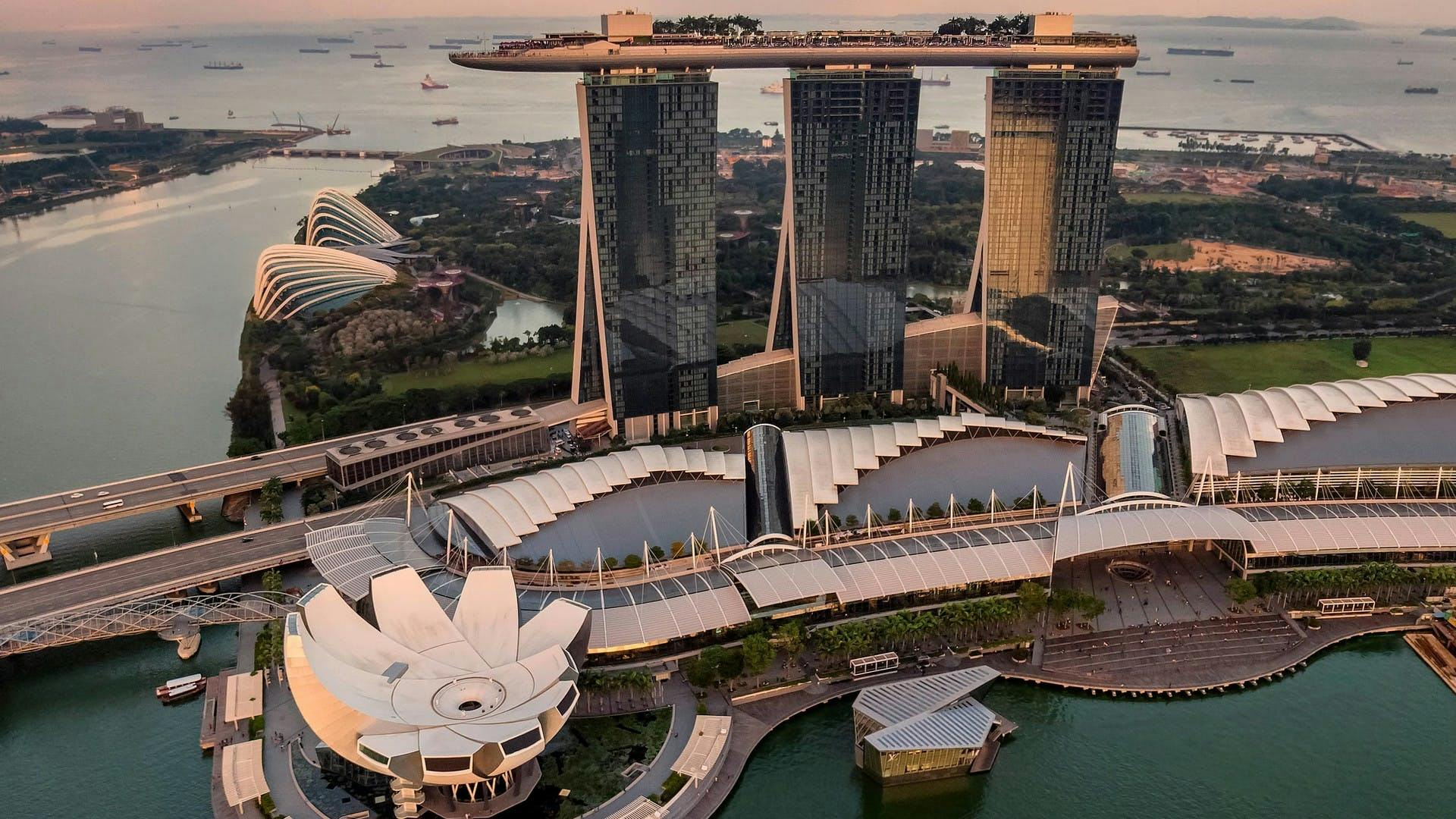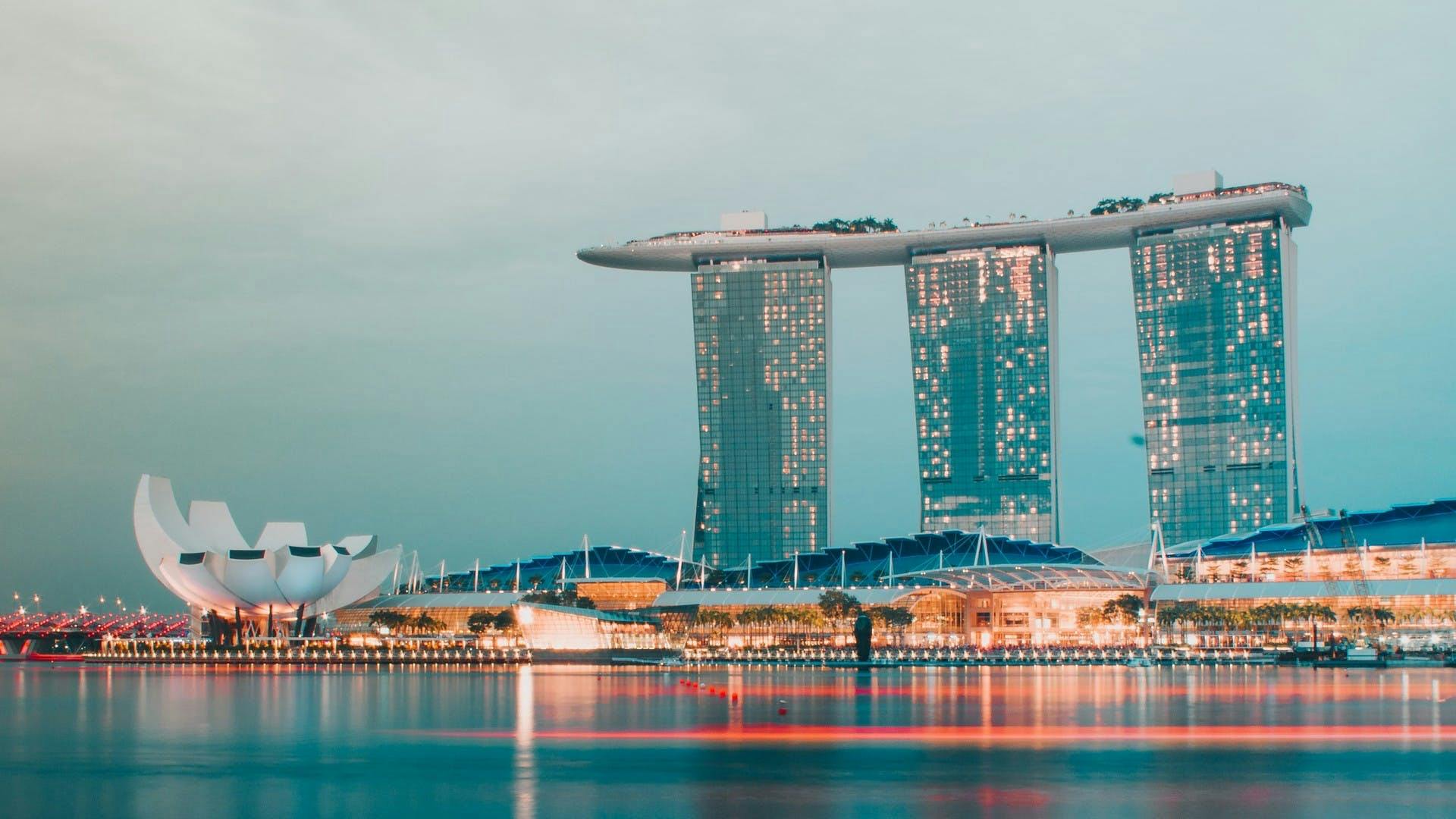Singapore: Southeast Asia’s new entrepreneurial destination
ingapore’s small but dense ecosystem is a prime place for startups with a high-tech future, but the city-state’s high cost of living may prove to be a deterrent for foreign entrepreneurs.

Photo: Unsplash/Chen Hu
In March 2019, Startup Guide is launching its first ever book in Southeast Asia, starting with Singapore. Since gaining independence in 1965, Singapore has grown from an underperforming city-state to a nation with one of the world’s most competitive economies and business-friendly environments.
As the gateway to Asia’s technology and finance scene, Singapore has become a “launchpad for entrepreneurs in Southeast Asia,” according to Sissel Hansen, CEO and founder of Startup Guide.
Singapore’s unique geographic position between India and Hong Kong has fostered a rich and diverse environment as cultures from across Asia come together. With increased support for promising deep-technology companies, an enhanced scheme for foreign entrepreneurs, and a cosmopolitan outlook, Singapore’s startup scene is set to propel itself onto the global stage as a great place to set up a business.
But what’s really got the globe focusing on Singapore? And what entrepreneurial treasures can be found there? We take a look at some of the key attributes of its ecosystem.
Southeast Asia’s emerging tech giant
Singapore’s robust technological infrastructure and highly educated talent pool have primed the city-state to emerge as a tech giant. Recent reports indicate that tech has become the primary industry in Singapore’s startup ecosystem, with the consumer digital industry making up 55 percent of the share.
As a location, Singapore was also ranked as the second best place to start a technology operation in Asia, scoring highly in areas such as employment criteria and talent availability, according to the “Top Locations in Asia (Technology)” report by Colliers.
The city-state’s most successful enterprises have given standard everyday services a technological update. Using data and high-tech solutions, companies can offer more streamlined services that customers can use at the tap of a button.
The ride-hailing company Grab, for example, is capitalizing on Singapore’s high internet and smartphone penetration rates to offer a number of services through a single mobile app. Not only does the app offer transport from cars to shuttle buses, but it also offers food and package delivery services.
Grab secured a sizeable portion of the dollars invested in Singapore in 2017, raising S$2 billion from China’s Didi Chuxing and Japan’s Softbank Group. With nearly three million daily rides, the company holds 95 percent of the market share in Southeast Asia and consequently rivals Uber in the on-demand transportation stakes.

Photo: Unplash/Lily Banse
Other Singapore-based startups are occupying their share of the limelight across Southeast Asia, such as 99.co with its tech solution to property searching.
99.co’s map-based property search engine uses algorithms to provide housing renters, buyers and property agents with a fast and efficient way to find properties in Singapore. Using data, their search portal enables customers to learn about and compare properties to make informed decisions about their choices.
In 2017, 99.co raised more investment than any other Singapore-based enterprise. The company secured a whopping $11 million in a Series A funding round led by Facebook co-founder Eduardo Saverin and Sequoia India.
Moreover, a recent report by the Singapore Business Review suggests that Singapore’s funding landscape is expanding by the day. The city-state’s exponential growth in the fields of technology and finance has seen a surge in interest from foreign investors – a trend that is set to continue for the next twenty years.
Fintech: one of Singapore’s biggest growth drivers
Fintech is one of the fastest growing industries in Singapore and is consequently at the heart of the city-state’s innovation strategy. With an abundance of financial experts, an ultra-high-speed fiber-optic infrastructure, and a generous funding landscape, Singapore is primed for mass fintech innovation.
According to a report from October 2017, The Monetary Authority of Singapore (MAS), Singapore’s central bank and financial regulatory authority, has pledged to provide funding to help enhance fintech solutions, such as electronic payments, digital IDs and electronic know-your-client checks. This will facilitate Singapore’s growth as a base for local and foreign fintech startups.
Statistics for 2017 show that the fintech sector saw the largest amount of funding across a single year, with $229.10 million of investment from large angel venture capital firms and government entities.
Singapore is, moreover, becoming a major mobile-payment player, with startups like Fastacash causing increased disruption in the fintech industry. With total equity funding of S$23.5 million, Fastacash provides a global payments platform that allows users to transfer money along with digital content through social media networks and messaging platforms.
Beyond ample government funding, Singapore’s prime location in the heart of the ASEAN region, an intergovernmental organization comprising ten Southeast Asian countries, will enable its technology industries to expand. Fintech companies have access to a single market size of over 625 million people in the region, which, according to a recent report, is greater than both the European Union (504 million) and the USA (319 million).
An abundance of opportunity for startups
Dedicated to attracting foreign entrepreneurs to their employment market, Singapore’s government has made the process of setting up a business both simple and cost-effective.
The Singapore Registrar of Companies can process your application in under an hour and your business can normally be incorporated on the same day. Moreover, registration only requires companies to have S$1 in paid-up capital. Founders from overseas can also enjoy reduced overhead costs and a favorable tax system.
Singapore’s quality talent is also nurtured by the city-state’s wealth of accelerators and incubators that offer funding opportunities and mentoring to help startups launch scalable business ideas.
Among Singapore’s key accelerators are: Startup Fintech bootcamp, a financial innovation accelerator that provides ten startups a year with funding, mentorship, office space and access to a global network of investors; Fatfish, which has a proprietary process called “Seed-to-Exit” designed to help entrepreneurs build and scale internet ventures; and Rockstart, which offers a 150-day accelerator program to enable startups for global scaling.
Singapore’s ecosystem is also rich in incubator funds, such as the Incubator Development Program (IDP) – an umbrella initiative that provides grant support to incubators and venture accelerators to help them enhance their programs for startups.
The cost-effectiveness of setting up a business in Singapore, however, is offset by the disproportionately high cost of living. The monthly rent for an 85 m2 furnished apartment in a “normal” area is as much as S$2,584, according to statistics from cost of living index, Expatistan, while utilities are as much as S$154 a month.

Photo: Unsplash/Nick Fewings
Singapore was ranked the fourth most expensive place to live in the world in the Mercer Cost of Living Survey of 2018, climbing one place from 2017. Singapore’s office properties are also likely to see a steady rent growth of over five percent per year for the next five years, according to a recent report.
Singapore’s rising rents may prove to be a deterrent for foreign entrepreneurs who require affordable startup costs.
Lively spaces to work and connect
The sudden flourishing of coworking spaces has accompanied Singapore’s boom in startups. As most spaces operate on a “plug and play” model where no contract is necessary, companies are able to acquire greater access to people and resources for a lower cost.
Found. is home to a network of innovation campuses and is Google for Entrepreneurs’ first Southeast Asian partner. The organization offers coaching, expertise and a lively space to work for a community of almost 500 entrepreneurs, creatives and techies.
A newer coworking environment is the Co., popular for its focus on sociability, wellness and discovery. Across its eight storeys, the Co. allows for a range of coworking opportunities, from corporate parties to private pods for individual study.
Moreover, Singapore’s most notable “startup hub” is Block 71, which now hosts 700 startups since its opening in 2011. Backed by government funding, the hub is designed to streamline the process of setting up a business by placing office space, mentors, financial assistance and networking opportunities under one roof.
Describing itself as a “global connector” with incubators not only in Singapore but in Jakarta, San Francisco, and Suzhou, Block 71 aims to make the process of companies starting up “easier and more hassle-free,” according to Prime Minister Lee.
Beyond Block 71’s fresh lick of paint are meeting rooms and event spaces, a large room for shared lunches, recreational sports facilities and two new blocks for office space. Events showcased at the hub include business clinics, hackathons and motivational talks.
Looking ahead, Singapore is set to maintain its status as Southeast Asia’s finance and technology hub. The city-state’s surge in investment opportunity and state-supported initiatives for startups will continue to attract business from overseas, but how long they can survive in an increasingly expensive environment is hard to tell.
Startup Guide Singapore is set to be published on March 14th, 2019.
Main photo: Unsplash/Victor Garcia

